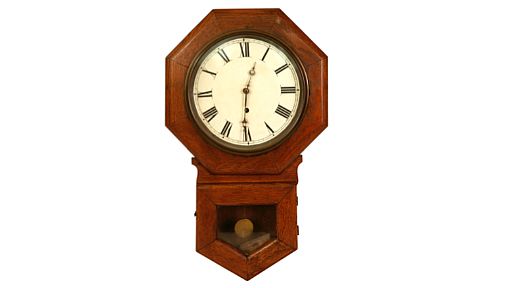Have Questions? Contact Us!
Find out the answers to your questions by contacting us. We look forward to hearing from you!
Where All The Best Clocks Come From

Time keeping means a great deal more now than it did years ago. Times have moved on apace and there is a real sense of urgency to cram as much in as possible to our lives. Of those people that up sticks and move abroad to take on an entirely different lifestyle it's mostly to escape the rat race that sees them being held as slaves to the clock. Yet, you don't have to look that far back in history to see that lives were governed by the simplest clocks of all - the sun and the moon.
Simple time-keeping was determined by the amount of daylight hours were available and this also led to the changing of things from one season to another. Now that we have the luxury of keeping track of time via mechanical methods day and night have become blurred to the point that the world functions twenty four hours a day.
So, what brought about the keeping of time in such a strict fashion? Well, we have the Swiss to thank for this. Crude time keeping pieces were already in existence but the reforms of 1790 restricting the wearing of jewels meant that the jewellers and craftsmen had to turn their hands to something else that would earn them their living.
So, this is where the making of watches came in. The Swiss have been famous for their watch-making skills ever since and there has been many a top designer originating from this area of the world to bring luxury watches to the masses.
It seems the Swiss have a natural penchant for the delicate handling and immense patience that it takes to build watches and the majority of them are built by hand even still. This is why a luxury watch is just that - because time is a true luxury and to know that you are wearing an item on your wrist that has taken at least one man hours and hours of time to put together is pretty special.
The Watchmakers Guild of Geneva was established in 1601 ushering in a standard that all watchmakers should set their time pieces by. Today, Hong Kong and Japan produce more watches than the Swiss do but there is a major difference. The Far East produce more 'disposable' watches whereas the Swiss produce much finer luxury watches that take up over fifty five per cent of the world watch market. By 1790, the Swiss were responsible for exporting 60,000 luxury watches per annum. Given that the population around this time was around one billion, that's quite some proportion. The standardisation of watch components helped a great deal as did some machinery that was constructed by dedicated watch builders that meant that the Swiss were producing the most accurate watches by a big margin.
The Swiss have been responsible for so many firsts in the making of luxury watches that this by far puts them at the undisputed forefront of watch making. They have produced the world's first wrist watch, the first water resistant watch, the first quartz watch as well as the thinnest, smallest, most expensive luxury watch on the market. They undoubtedly have always produced the most accurate of timepieces and have proved their dedication to continuing with perfection with patience and skill.


Be the First to Post on this Entry
There hasn't been any users whom have commented on this entry yet.Be the first one!